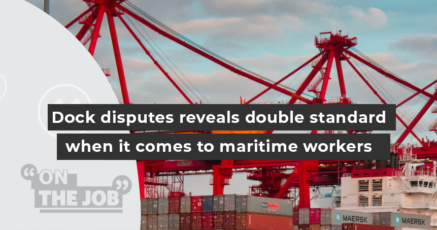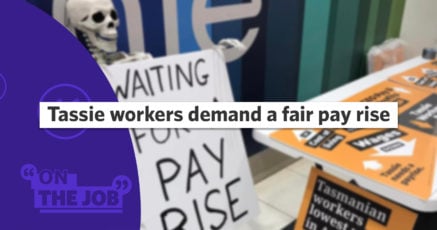Couriers and drivers in New South Wales will be paid minimum wage, following a landmark decision by the NSW Industrial Relations Commission.
After a long and arduous Transport Workers Union (TWU) campaign, couriers will receive significant improvements to their rates of pay phased in over the next three years.
The Commission’s decision will see owner-drivers of vans with a carrying capacity between 1.5 and 3 tonnes entitled to an enforceable rate of $43.74 an hour.
Crucially, the new determination captures Amazon Flex drivers, who will for the first time be entitled to an enforceable rate of $37.80.
Gig-economy giant Amazon Flex is one of the newer players in the industry which has been attempting to skirt around having to cover costs for owner/operator drivers who use their own vehicles.
These drivers will now have a return on cost thanks to the Commission’s decision.
Flex drivers will now be the first in the world to enjoy enforceable rates of pay along with rights to dispute resolution, union representation and collective bargaining.
TWU national secretary Michael Kaine told On the Job this win for the TWU was a landmark ruling with global implications.
“We’ve had a reaction from other unions and workers who’ve seen what’s happened here and this is having a ripple effect across the world,” he said.
“What we have is these gig operators like Amazon and Uber and others deliberately pushing people into non employment relationships.”
“We’ve got Amazon flex in New South Wales, treating these workers as independent contractors, and pushing them beyond the employment protections,” Kaine said.
In New South Wales, laws with bipartisan support underwrite the operation of owner drivers to ensure the cost of vehicles is incorporated into the rate of pay.
Kaine explained how the TWU made an application to the NSW Commission using those very laws that “have been in place for 45 years” and have produced “a consent arrangement with other transport operators that there should be an appropriate rate set up for this type of work.”
“And that’s a really important breakthrough,” he said.
“It means that Amazon Flex workers will be protected, and that Amazon can’t slip through the loops that they are creating themselves that push these workers outside of regulation”.
ACTU secretary Sally McManus celebrated the decision, saying it was a crucial circuit breaker in the fight against worker exploitation in the gig economy.
“Gig economy employers have been put on notice today – Australians will not tolerate his business model that relies on poverty wages and worker exploitation,” she said.
“Today’s decision will be the first significant pay rise that many drivers have seen in 15 years, over which time operating costs have increased dramatically, leaving many drivers earning below minimum wage.”
McManus commended the TWU on their win: “they have shown that workers standing together can take on the biggest companies in the world”.
For driver operators, the decision will alleviate growing cost pressures. It will also put a stopper in the race to the bottom for workers’ pay and conditions.

Kaine explained that this race to the bottom had occurred due to traditional logistics companies struggling to compete with new entrants in the sector who have evaded regulations.
“It’s an important advance in the attitude of other traditional transport employers who are fast realising that unless they take action to put in place a level playing field regulation, then of course, they’re going to be bypassed by the gig economy as well,” he said.
“Workers now will get an increase in rates which will progressively increase in the next few years until it is genuinely a cost recovery.
“They’ll get paid for their labor at equivalent of what an employee would be paid, but they also get their costs of running the vehicle, their insurances, their superannuation fully covered.”













SHARE:
Couriers and drivers strike back against the gig economy